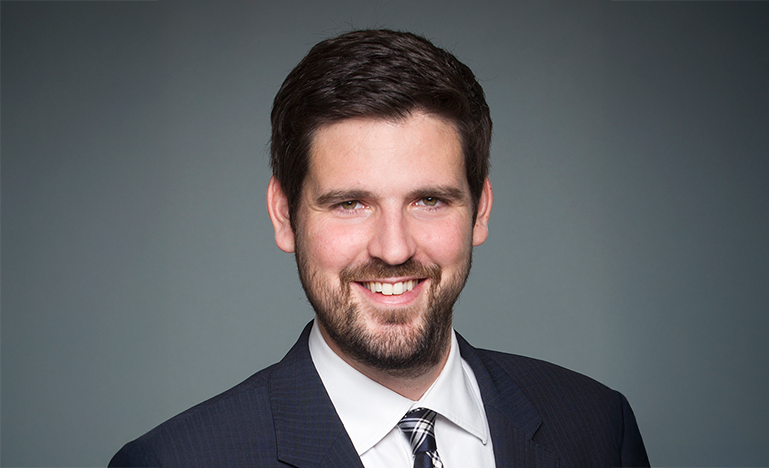Sean Fraser named Canada’s new justice minister
Engaged and approachable, Nova Scotia lawyer described as someone who sees the bigger picture while eschewing talking points

Prime Minister Mark Carney named Sean Fraser minister of justice and attorney general this week, marking a comeback for someone who had decided to retire from politics.
The Nova Scotia MP announced in December that he would not seek re-election, but changed his mind shortly before the election after a call with Carney in March.
"It's an opportunity to demonstrate to my kids that when there are important fights to have, good people need to stand up to bullies," he said at the time, referring to the current U.S. administration.
Fraser previously served as minister of immigration and minister of housing under former Prime Minister Justin Trudeau.
He graduated from Dalhousie University’s Schulich School of Law, and later attained a Master’s degree in public international law from Leiden University in the Netherlands. He spent several years working in Blake, Cassels & Graydon LLP’s Calgary office and was an associate research fellow with the Centre for International Sustainable Development Law.
Before entering politics, Fraser served as vice-president of a local branch of the United Nations Association in Canada and assisted self-represented individuals in civil court proceedings on a pro bono basis. He also worked to promote access to information laws with a human rights organization in South Africa.
CBA president Lynne Vicars welcomed Fraser’s appointment.
"The CBA and the federal government share a strong commitment to upholding the rule of law, promoting access to justice, and ensuring a fair and efficient legal system for all Canadians," she said in a statement.
“We are eager to work with Minister Fraser to help safeguard the integrity of our justice system by ensuring that courts have the resources they need to serve Canadians effectively,”
Vicars thanked former minister Gary Anandasangaree for his contributions during his term and “the meaningful and positive dialogue we engaged in around strengthening the justice system.”
During her time as chair of the CBA’s immigration law section, Lisa Middlemiss of Middlemiss Immigration Law in Montreal had occasion to interact with Fraser when he was minister ahead of the “fireside chat” held during the CBA’s annual immigration law conference. The event also included a Q&A where members could raise some of the challenges their clients were facing to get the minister’s response.
At the time, fires were raging in Nova Scotia, so Fraser attended the Ottawa event virtually — but took the tough questions.
“He’s definitely someone who is able to see the bigger picture, which is probably why he then became minister of housing, which is related in some ways to immigration, and has now been given a new mandate with justice,” Middlemiss says.
“He was certainly engaged at the big-picture level, even when he was immigration minister, which was his first ministerial role.”
That sentiment is echoed by Kyle Hyndman, a partner with MSK immigration lawyers in Vancouver, who also served as chair of the CBA section when Fraser was immigration minister.
“We had one or two video calls with him,” Hyndman says of his term, which overlapped with the pandemic.
“He’s a smart guy, and he was very engaged in the portfolio and understood the issues. He was very well briefed and had done his homework. He was very approachable, and didn’t stand on ceremony—we just got right down to business and he seemed really open to hearing our priorities.”
Hyndman says his initial impression was positive as someone to deal with, though the jury is still out on Fraser’s record during his time in the portfolio.
“He was definitely one of the more approachable ministers,” Hyndman says.
“That hasn’t been the case for all immigration ministers.”
While previous immigration ministers have been lawyers, they haven’t always practiced much. That wasn’t the case with Fraser.
“He understands the law and appreciates the role of lawyers. He wanted to hear what we had to say,” Hyndman says.
“He didn’t always do what we wanted him to do, but no minister does, and we don’t expect them to.”
During his time in cabinet, Fraser gained a reputation as a minister who tends to speak in full paragraphs rather than talking points, which Hyndman always appreciated.
“He wasn’t sloganeering with us at all,” he says.
“You expect politicians to be able to listen to you and talk to you like grown-ups, and not all ministers have done that. Others have been really stand-offish, talked down to us, or been inaccessible. He was none of those things.”
Hyndman hopes that with his cabinet table experience, Fraser can provide guidance to the new immigration minister, Lina Metlege Diab. While Metlege Diab served as Nova Scotia’s immigration minister, the federal role is a different beast.
“I would like to think that if there are really big issues on the immigration file, especially legislative or regulatory issues, that maybe he’ll have some hand in that as someone who really understands the portfolio,” Hyndman says.
“At the very least, he can point Minister Diab in the right direction.”
Of note is that Fraser’s spouse, lawyer Sarah Burton, served on Nova Scotia’s provincial law reform commission.
In an email, Shauna Van Praagh, president of the Law Commission of Canada, says she looks forward to meeting with Fraser and other parliamentarians interested in law and justice, to share “the work the Law Commission of Canada has been doing as we head to our second birthday [in June] as an independent agency committed to engaging the people of Canada in the ongoing and dynamic evolution of law.”


